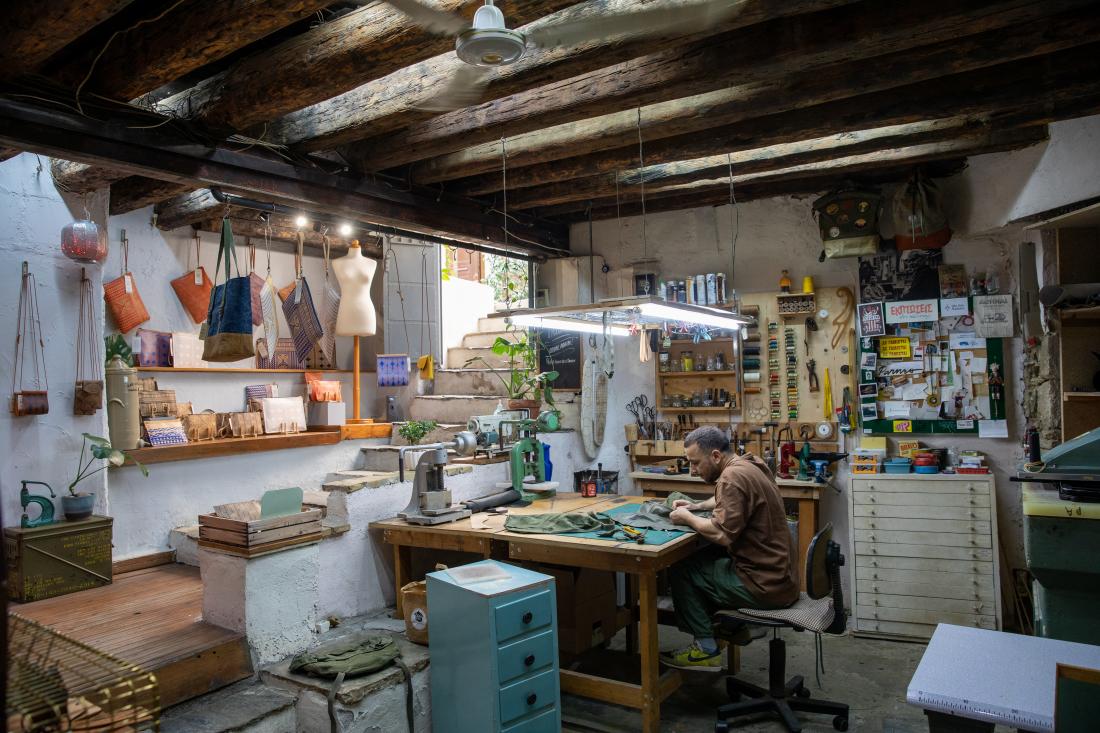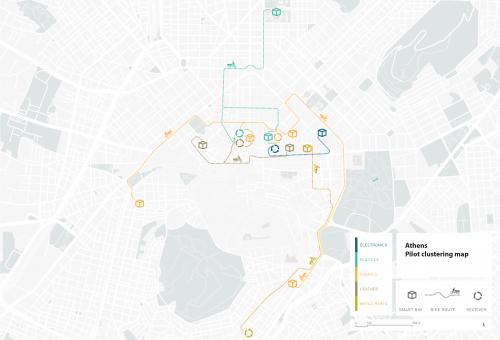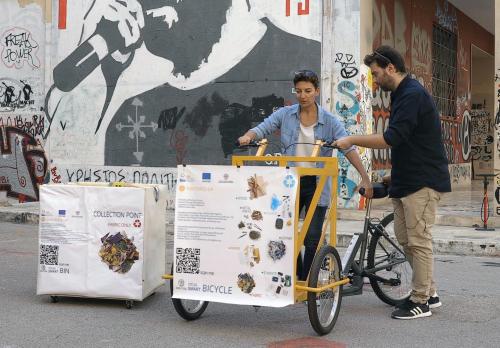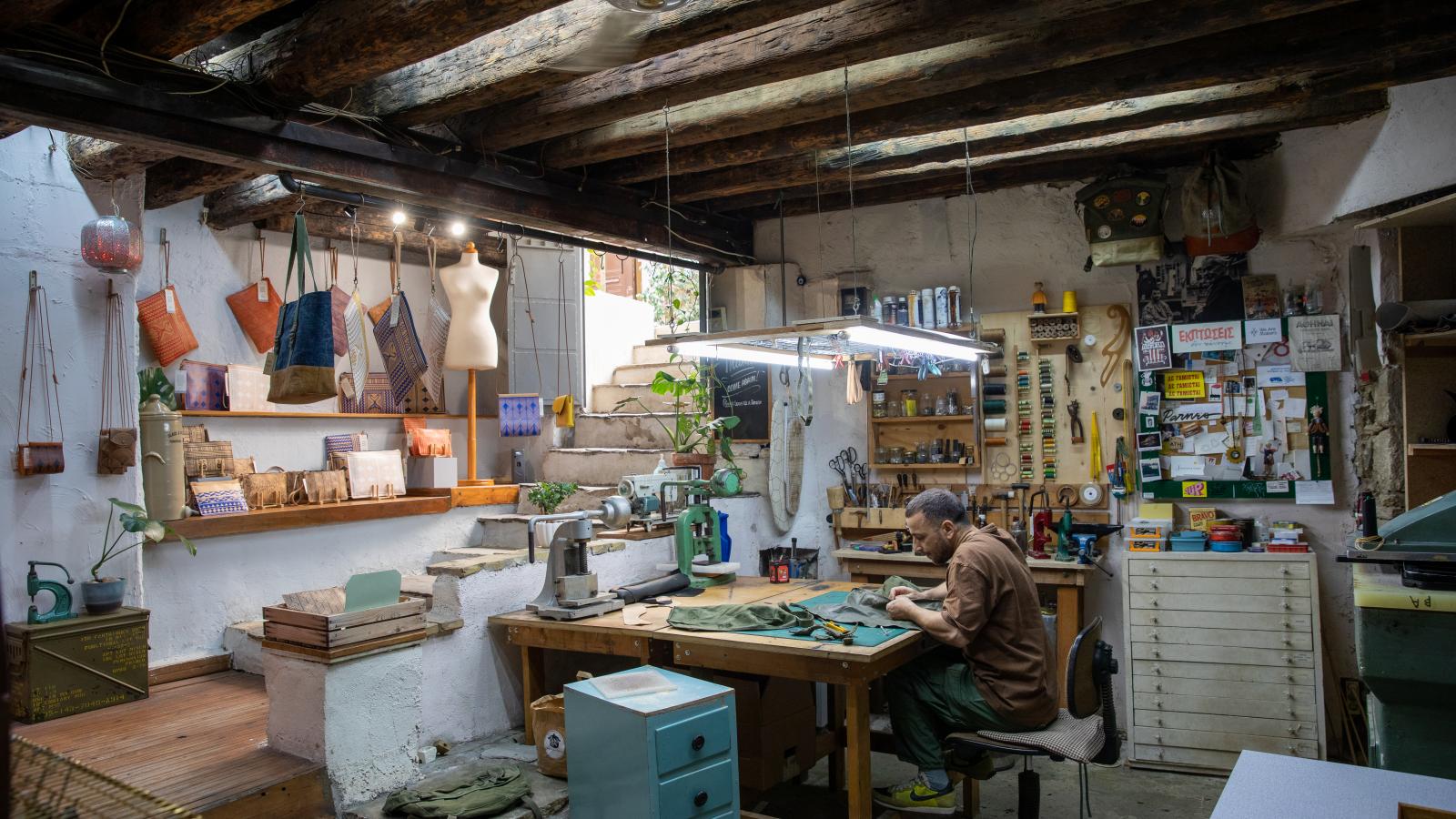INNOMED-UP combines circular economy and creativity to revitalize Mediterranean city centres

Born in Egypt, of Greek nationality, Sofia Avgerinou Kolonias is professor emeritus at the National Technical University of Athens (NTUA) at the School of Architectural Engineering, Department of Regional and Urban Planning. She is the coordinator and scientific manager of INNOMED-UP project, funded by the ENI CBC MED programme. She and her team have worked hard and dedicated a lot of time over the last 4 years to set up this project which focuses on promoting the circular economy with small creative businesses in Mediterranean city centres.
Circular economy and creativity for a better regional planning
Prof. Avgerinou Kolonias has been working on the revitalization of historic cities for over 20 years. The starting point of the INNOMED-UP project comes from the fact that the city centres of many Mediterranean cities like Athens are suffering the consequences of urban development plans which lead to the gentrification of city centres while driving away craftspeople and small shops.
It is from this observation that she and her partners have worked on how to revitalize urban centres in the Mediterranean region using creativity and in collaboration with Small and Medium Enterprises (SMEs), particularly those working in the sector of the circular economy.
According to Prof. Avgerinou Kolonias, historic Mediterranean cities were born from creativity. They are centres of creativity and commerce (products generated by this creativity). The cities that participated in this project (Athens in Greece, Palermo and Prato in Italy, Irbid in Jordan, Hebron and Nablus in Palestine and Tunis in Tunisia) are all different but share similar Mediterranean characteristics. The partners first studied the different cities and divided them according to the degree of creativity and circularity they use. Some are adopting innovative technological methods to address climate change while others maintain the use of traditional methods.
Thanks to this, a cross-border dialogue between the two shores was set up, which enabled these cities to exchange ideas and initiatives that could be developed by getting inspired from each other through the good practices implemented in these different cities.
Soft urban mobility to connect craftspeople and creators
Clusters have been created in each of these cities where the idea is to reduce waste, connect craftspeople who produce leftovers from their production with creators who can reuse these leftovers. Bicycles made from reused materials were built to transport those leftovers to the creators. This soft mode of transport is also ideal for getting around either in medinas with narrow streets or in cities with lots of traffic jams.
A platform has also been created to facilitate contact between the different stakeholders. Thus, clusters of textiles, leather, paper, plastic, electronic equipment were created as we can see on the map of Athens below.


Map of Athens with the different implemented clusters (textile, paper, plastic,...). Bicycle from reused material to transport lefovers from craftspeople to creators
Bringing textile craftsmen and jewelers back to central Athens
As mentioned above, urban development plans of the 1980s/1990s moved craftspeople out of the city centre. Sewing workshops and jewelers have been replaced by cafes, restaurants and other leisure activities. A city like Athens, which was known as a cultural tourist destination and an obligatory stopover before going to the islands, is now in the list of European capitals of urban tourism. Low-cost airlines as well as tourist apartment rentals contribute to making this city increasingly inaccessible for its own inhabitants. How can we adapt to these changes while trying to bring the traditional sectors known from Athens back to its center? Clothes and jewellery can find buyers among tourists. Small initiatives like the one developed by INNOMED-UP can contribute to a change that both promotes a circular economy model and supports craftspeople and small shops.
Involve all relevant stakeholders for a better governance model
In a project like INNOMED-UP which brings together various entities (universities, public enterprise, municipalities and NGOs) and countries where the governance systems are very different (centralized, decentralized, etc.), the challenge is significant. This is also what makes it so rich.
In certain cases, town halls have a circular economy strategy but do not involve craftsmen and small businesses. In other cases, citizens have a lot of will and involvement, but the town hall does not (yet) have an action plan in this sector. Sometimes, the competences of certain entities interfere with the competence´s of others, which makes the task even more difficult. For example, a municipality is responsible for waste management and the granting of building permits but in certain cases this can overlap with another plan which depends on the Ministry of Equipment and Public Works.
Thanks to all these configurations, by analysing and exchanging them, partners learned a lot and were able to sign Memoranda of Understandings with different stakeholders. But beyond that, nothing is more effective than setting up pilot initiatives and demonstrating their usefulness to convince the different governance structures of the importance of associating different actors to tackle the challenges of the city of tomorrow. It is long and slow, but for a Mediterranean person like Prof. Avgerinou Kolonias, these efforts are worth it.
Convincing public institutions and making these types of initiatives known, offer opportunities to collaborate and disseminate ideas that allow us to move forward in the implementation of models that combine sustainability and the revitalization of city centers.











